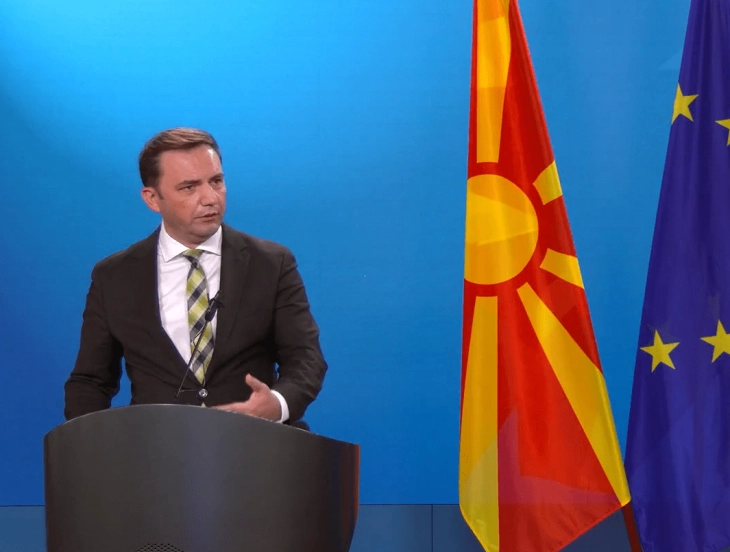It's in Bulgaria’s interest that region succeeds, FM Osmani tells EUobserver

Skopje, 17 November 2021 (MIA) – Minister of Foreign Affairs Bujar Osmani expressed hope in an interview with EUobserver that Skopje and Sofia can now focus their energy on resolving the dispute, following Sunday’s elections in Bulgaria.
“It's in the interest of Bulgaria that this region succeeds," he said.
Regarding the situation in Bosnia and Herzegovina, Osmani told EUobserver that he doesn’t expect the happenings of the 90s to happen again in the region.
"We are not at that stage that this could turn into a war or conflict," he said, pointing to NATO’s presence.
FM Osmani underlined that NATO and a regional maturity, due in part, to the European Union perspective, is a guarantee for stability.
"NATO is a guarantee for the political predictability, stability and security. This is the fuel that is keeping this engine moving and this glue that is keeping these contradictory narratives together," he added.
The top diplomat said resolving EU accession issues with North Macedonia and Albania would also provide incentives for Serbia and Kosovo "to follow the path of reconciliation."
"And by then you pave the way to solve the Bosnia issue," he said, adding that the fate of the region hinges on opening negotiations in the so-called intergovernmental conference.
The EUobserver noted that the EU's foreign policy Josep Borrell made similar comments following a meeting of foreign affairs ministers on Monday.
Borrell said the intergovernmental conference for North Macedonia, along with Albania, should be held as soon as possible and by the end of the year.
"Not doing so is negatively impacting the credibility of the [European] Union and the entire region," he said.
The EUobserver added that efforts to kickstart North Macedonia's EU accession talks have derailed over the years, leading to mounting frustrations, underlining that the European Commission says the delay risk jeopardising the EU's standing and leverage in the region - in reference to Russia and China influence.
In June 2018, the publication stressed, North Macedonia agreed to change its name, following a longstanding dispute with Greece, which has a region called Macedonia.
The Bulgarians, it added, have since chimed in, demanding further concessions on language and ethnicity.
“It is unclear if Bulgaria will switch tactics. But a new centrist anti-corruption party in Bulgaria, ‘We Continue the Change’, is poised to win a recent election and help shape a new government. The Bulgarian election also follows political upheavals in North Macedonia,” wrote the Euobserver, adding that pro-Western prime minister Zoran Zaev resigned in late October, only to later withdraw his resignation.







